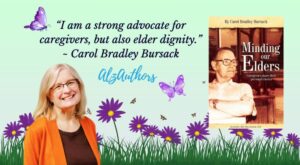Detaching With Love: Setting Boundaries With Difficult Elderly Parents
When the family member we are trying to care for is critical, impossible to please or emotionally abusive, long-standing family dynamics are often to blame.
I’m not talking about caring for an elder who is suffering from chronic pain or who has little control over their moods and behaviors because of dementia. In those cases, it’s clear that we need the help of professionals to find a solution, like palliative care for symptom relief or a memory care unit that specializes in dementia behaviors.
What I’m referring to are children who, after a historically toxic relationship, are now in a position where they need to make care decisions for an abusive family member.
Many members of AgingCare’s Caregiver Forum post about caring for abusive elderly parents. Aging—and the problems that come with it—often makes a toxic parent even more intense. A frail parent may no longer be able to lash out physically, but that loss of control sometimes makes their tongue an even stronger weapon.
Yet, it is natural for adult children to love their parents and want to ensure proper care for them as they age. The little kid inside of us most likely still wants our parents’ approval. When we are denied that validation, even as adults, it hurts. If you had a difficult childhood and a troubled relationship into adulthood, how do you care for abusive parents without incurring additional psychological harm? How do you provide adequate care despite their ongoing criticism and abuse?
The Importance of Setting Boundaries with Toxic Parents
Many mental health professionals would suggest “detaching with love.” Detaching is a method of setting boundaries to protect yourself by creating emotional distance from the actions of another. According to the Hazelden Betty Ford Foundation, this technique was initially established by Al-Anon, a mutual support group for families and friends of alcoholics.
While detachment with love has traditionally been applied in situations where a loved one is struggling with addiction, it can also be used in other contentious relationships—especially those with individuals who have mental health disorders like borderline personality disorder (BPD) and/or narcissistic personality disorder (NPD). By giving up the notion that you can control a dysfunctional person’s behavior, you stop allowing them to control your emotions…
Continue reading on Agingcare for more on difficult parents and how to help yet protect yourself:
Discover the Difference. EGOSAN: The premium incontinence brand caregivers love – Now Available on Amazon. Trial packs
Check out Dr. Leslie Kernisan’s free training webinar How to Help Resistant Aging Parents and consider joining this amazingly supportive group! Better Health While Aging presents Helping Our Older Parents:
Minding Our Elders: Caregivers Share Their Personal Stories. “For anyone having to walk the last segments of life with a loved one, read this.” …Delores








